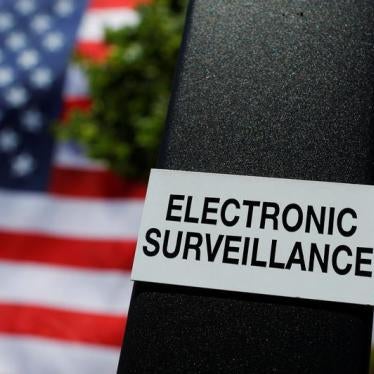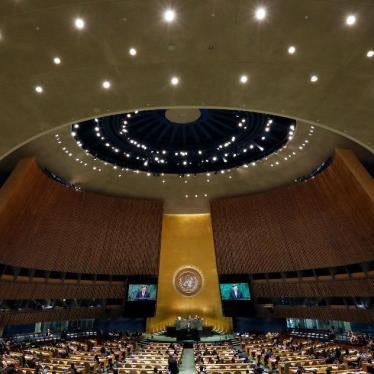Dear Congressperson:
No other country imposes life imprisonment or decades-long incarceration on its population to the degree it is imposed in the United States.[1] Reams of criminological evidence demonstrate that this reliance on long sentences produces diminishing returns on public safety, substantially contributes to mass incarceration, and perpetuates racial disparity in the criminal justice system.[2] Thus, the Justice Roundtable, represented by the undersigned organizations, urges you to cosponsor the Second Look Act (H.R. 3795/S. 2146), introduced by Representative Karen Bass and Senator Cory Booker, to restore more proportionality in federal sentencing by reexamining excessive prison terms, and allowing for release in cases of redemption and transformation.
The Second Look Act would allow judges to consider petitions for sentence reductions after a person has served at least 10 years. To grant release, the court must find that the person is not a danger to public safety and demonstrates readiness for reentry, and that the interests of justice warrant a sentence modification. Petitioners who are 50 or older would have a rebuttable presumption of release.
A case in point is Matthew Charles, who received a standing ovation from members of Congress when President Trump introduced him at the State of the Union in February and welcomed him home. Sentenced to 35 years, Mr. Charles served over 20 years in federal prison before being released due to the newly-enacted First Step Act’s retroactive sentencing reform. He has gone on to become an inspiring advocate for change and is a reminder of the lost potential locked away in federal prisons.
Criminal behavior is most common during teenage years and tapers off during young adulthood.[3] Incarcerating people after they have aged out of their crime-prone years comes at great expense. Long sentences add little deterrent effect on crime. Research shows that deterrence is a function of the certainty of punishment, not its severity.[4] Long sentences are also costly and impede public investments in effective crime prevention, substance use treatment, and other rehabilitative efforts that produce healthier and safer communities.
When Congress ended federal parole and established a determinate sentencing system, the federal prison population was 49,378.[5] It has increased 260% since then, and half of the people in prison are serving a sentence longer than 10 years.[6] Overcrowded federal prisons and staffing shortages have contributed to dangerous conditions and limited opportunities for rehabilitation. The Second Look Act provides an opportunity to safely reduce our prison population by alleviating our bloated prison system of wasteful and ineffective sentences.
We urge you to cosponsor the Second Look Act (H.R. 3795/S. 2146) to ensure more fairness and effectiveness in our federal justice system.
If you have questions, please contact the Justice Roundtable’s Sentencing Reform Working Group chairs: Kara Gotsch (kgotsch@sentencingproject.org) and Nkechi Taifa (Nkechi@thetaifagroup.com).
Sincerely,
Alliance of Baptists
American Civil Liberties Union
Black Psychiatrists of America
Campaign for the Fair Sentencing of Youth
Campaign for Youth Justice
CAN-DO Foundation
Center for Disability Rights Inc.
Church of Scientology National Affairs Office
Coalition for Juvenile Justice
Crack Open The Door
CURE (Citizens United for Rehabilitation of Errants)
Defending Rights & Dissent
Drug Policy Alliance
Exodus Foundation.org
Faith Action Network, Washington
FAMM
Friends Committee on National Legislation
Health in Justice Action Lab, Northeastern University School of Law
Human Rights Watch
Institute of the Black World, 21st Century
Interfaith Action for Human Rights
Just Detention International
Just Leadership USA
Justice Strategies
The Leadership Conference on Civil and Human Rights
Legal Action Center
Life for Pot
Mennonite Central Committee, Washington Office
Million Hoodies Movement for Justice
NAACP
National Action Network
National African American Drug Policy Coalition, Inc.
National Association of Criminal Defense Lawyers
National Association of Black Social Workers
National Association of Social Workers
National Center for Lesbian Rights
National Center for Transgender Equality
National Council of Churches
The National Council for Incarcerated and Formerly Incarcerated Women and Girls
National Council on Independent Living (NCIL)
National LGBTQ Task Force Action Fund
National Urban League
NETWORK Lobby for Catholic Social Justice
Operation Restoration
Pittsburgh Justice Collaborative
Safer Foundation
The Sentencing Project
Students for Sensible Drug Policy
The Taifa Group
Transgender Law Center
Union for Reform Judaism
Unitarian Universalist Association
United Church of Christ, Justice and Witness Ministries
Washington Office on Latin America (WOLA)
WE GOT US NOW
Western PA Black Political Assembly
[1] Dirk van Zyl Smit and Catherine Appleton. 2019. Life Imprisonment: A Global Human Rights Analysis, Cambridge, MA: Harvard University Press.
[2] Mauer, M. (2018) Long-term sentences: Time to reconsider the scale of punishment. UMKC Law Review, Vol. 87:1.
[3] Laub, J. & Sampson, R. (2003). Shared beginnings, divergent lives: Delinquent boys to age 70. Cambridge: Harvard University Press.
[4] Nagin, D.S., (2013). Deterrence in the twenty-first century: A review of the evidence. Crime & Justice.
[5] Past Inmate Population Totals. Federal Bureau of Prisons. https://www.bop.gov/about/statistics/population_statistics.jsp
[6] Inmate Statistics: Sentences imposed. Federal Bureau of Prisons. https://www.bop.gov/about/statistics/statistics_inmate_sentences.jsp








